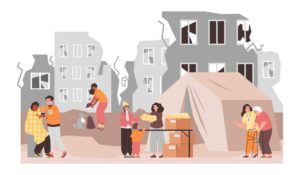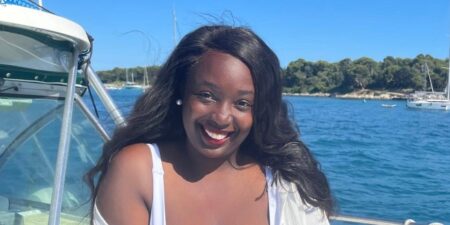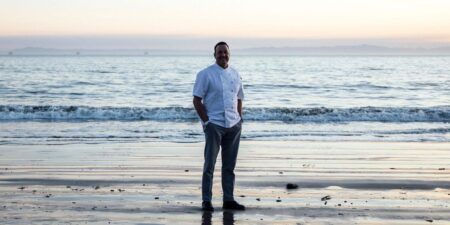- Genesis Gutierrez is the founder of Harness, a therapeutic community for women.
- She immigrated to the US with her parents when she was 7, on a business visa.
- She later became undocumented as a teen, until being granted asylum.
This as-told-to essay is based on a conversation with Genesis Gutierrez, founder of Harness. It has been edited for length and clarity.
I don’t remember much about my parents’ decision to immigrate to the US. I was only 7, and it seemed like one day, life was normal in Venezuela, and the next, we were boarding a plane to Miami.
My parents, two brothers, and I immigrated on a business visa. My parents had a business in the US selling gift shop items and small trinkets, and they had a similar business in Venezuela. But as the political situation in Venezuela worsened, they couldn’t keep the Venezuelan business to meet the terms of their visa. When I was about 13, we became undocumented.
At first, I didn’t feel the impact. My parents continued their US-based business, and we lived a middle-class life in Orlando. But when I was around 16, I realized my immigration status would impact my life. I qualified for Florida scholarships with my grades but not with my immigration status. I had to pay out-of-state tuition for community college classes I was taking.
Eventually we were granted asylum
After graduating from high school, I moved to California. There, I felt like the first place I could get my questions answered. During a visit, I walked into a community college and explained my immigration status. They knew just what to do.
Once I moved to California, I could get in-state tuition and a driver’s license, which gave me stability that I didn’t have in Florida.
Soon after that, in 2020, my parents applied for asylum. Since I was under 21, I was part of their petition. At first, the application was denied because we had been in the US for so long, but upon appeal, it was approved.
I gained lawful immigration status in 2023 and expect my green card to arrive any day now.
I started an online community to connect, and it became my business
I identify as American. And yet, for a long time, I felt I had no control over my life because of my immigration status. I studied international development in college but still don’t have a passport.
Since I couldn’t travel, I started connecting with other women and sharing their stories. I realized that many women had mental health challenges and grief, just like me. Our stories and situations were different, but our needs were the same.
In 2020, I started Harness, an online community for women. We do healing exercises, journal, work with therapists, and support each other. Soon, we’ll be starting live events.
Founding a company gave me control
My parents have always been entrepreneurs — that’s what brought them to the US. They taught me work ethic and resilience that served me well as I started a company while going through immigration proceedings.
Today, I pay myself a six-figure salary while reinvesting in my company. I have financial stability, but more than that, I have the freedom to work when I want and bring my company in the direction that I think is best. I never chased venture capital funding because I wanted to retain that control.
I used to think I would want to travel and celebrate as soon as I got my green card. But now, I don’t feel that anxiety or pressure. I let immigration control my life for so long, but I’ve found my purpose in my company and the community I’ve created. In building a business, I’ve taken control of my life, regardless of my immigration status.
Read the full article here
















